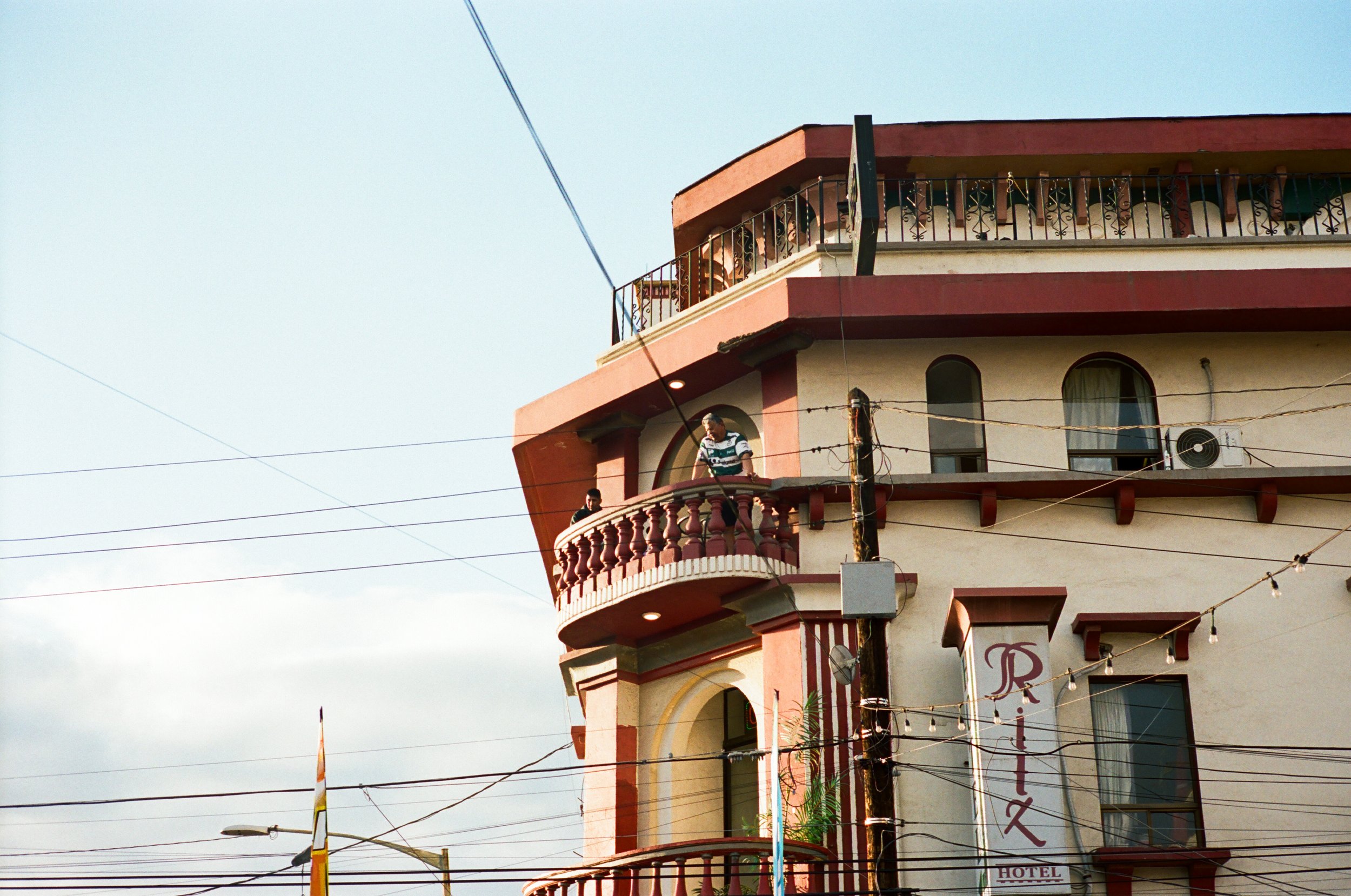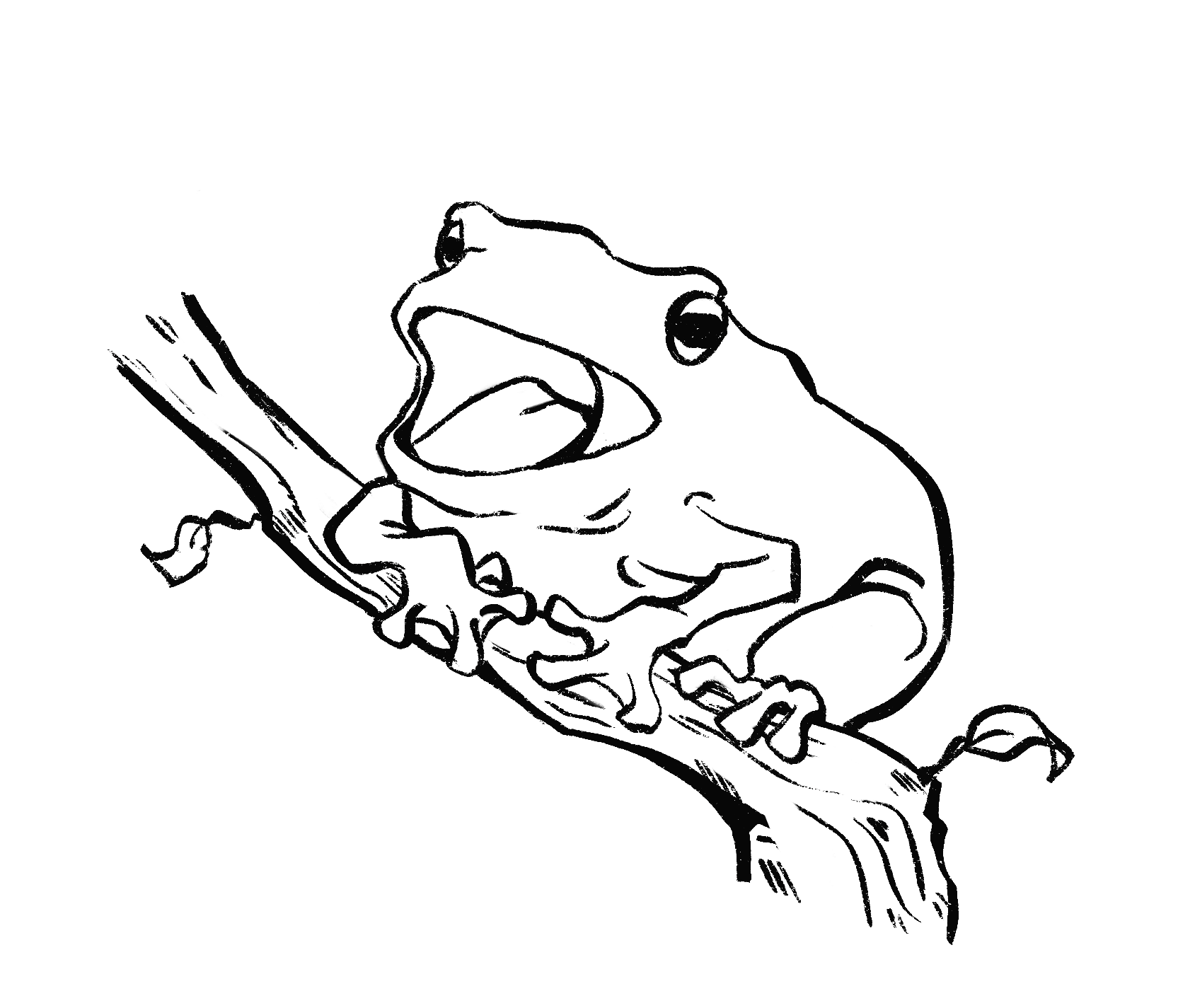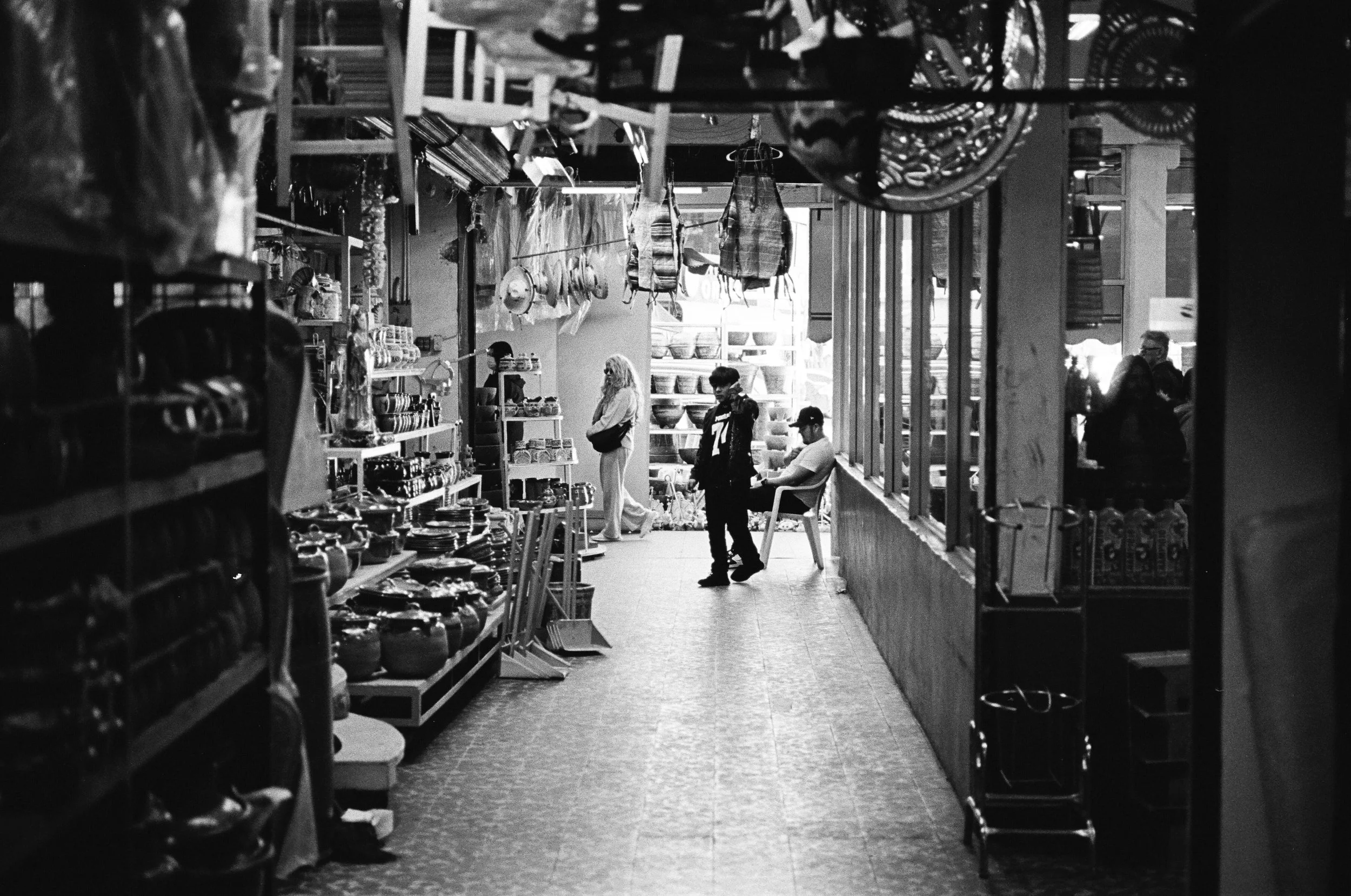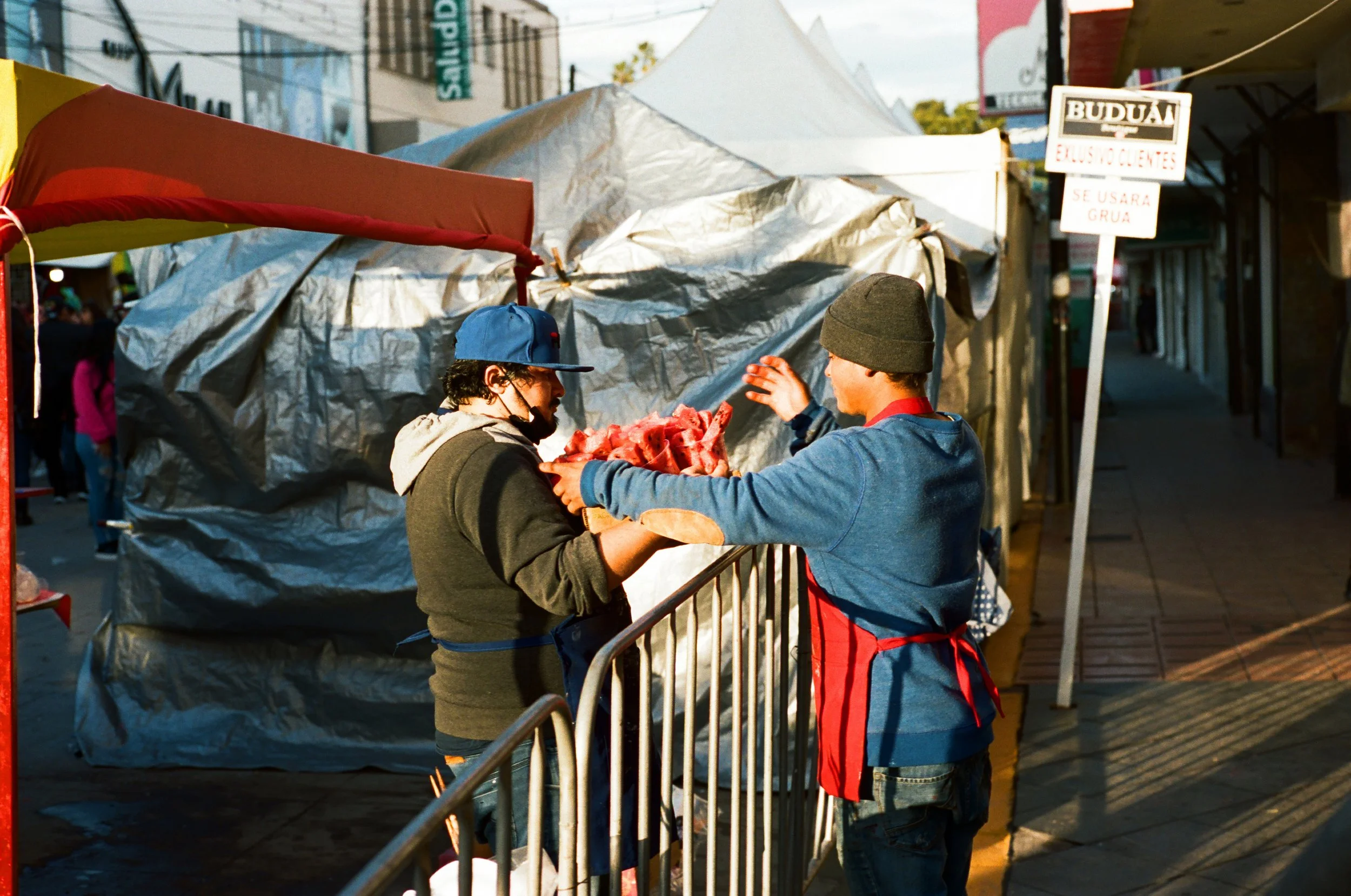The Baja California Issue
Coaxing Fictions from the old earth
Sound in tijuana
As a traveler, I’m all too familiar with plans going awry, and the haphazard improvisation which follows suit. On the road, things don’t always go to plan, and I rarely expect them to. As a writer, however, I still wrestle with this truth. Having taken pride in my ability to spin a situation to my creative benefit — to always find an angle, one which extracts colorful impressions from otherwise ordinary experiences — Caravan’s Baja California trip put this instinct to the test.
Waltzing into Mexico with an outrageous plan to watch Lucha Libre in Tijuana, we were abuzz with anticipation. Naturally, in accordance with Murphy’s law, that plan never came to fruition.
I will admit, I was secretly distraught that we missed the fight. But my disappointment offered an opportunity for the unearthing of the imagination beneath my expectations for the Lucha:
What did I imagine? Was it a stuffy stadium room, beefcakes in shiny costumes, broken glass and busted lips? Maybe a mustachioed middle-aged host dodging bloody clumps of hair?
Perhaps the Lucha I spectated in my imagination could never live up to the one I never attended. I couldn’t report on the ultra-glamorous Tijuana that I had envisioned, precisely because it did not exist: I had imagined it.
Realizing it would be unfulfilling to write about everything I did not see, this article became more rumination. And disappointment, especially in the context of travel, leaves one wanting a place, and that wanting leads us to fill in the gaps. Where there is something left to be desired, our minds map out the most curious fictitious topographies. Only in the absence of experiences can our fictions proliferate, spread like wildgrass on the outskirts of the highway.
Tijuana evaded prosthetic encapsulation. It wriggled out of my grasp, slipped between my fingers transforming every second like a fleeing octopus. Or a chameleon. Like the papel picado strung across alleyways, it refused to stay still, and danced maniacally, growing, bursting, changing. It was maddening to desire and fantasize about a place that danced away from my pen.
Call me a control freak, but writing about my travel experiences is a way to fossilize places, to remake them by my design. It's human to anticipate, to see the future, to predict something before we behold it. By allowing my fictions — my versions of a place — to live beside it, I can experience it more deeply. Make no mistake: I’m not confessing that my writing is just a calculated web of fiction. Nor is my fiction-play a retrospective and conscious delusion. Rather, it's a way of being in someplace. It’s instantaneous, inherently human practice: without our fictions, we fail to deliver meaning to our experiences.
My fictions collided with the very real sounds of the places I visited. The sounds offered a story, something which only made sense in the context of other sounds. Why, might sounds be important at all? Perhaps in a Caravan fashion, the answer is because they are decidedly personal. To be clear, the Tijuana I am writing about is not the real place. It is mine. You must go there for yourself and see how yours looks. How it looks, staring back at you.
I encourage you to look at each photograph in this series, and imagine what they sound like.
So, I write my Tijuana. And the pieces of my experience, which when strung together create a story, perhaps fantastical, of Baja California, and the ancient land, the shifting, breathing tierra antigua, upon which they lay.
—-
A frog surprises the thick darkness.
Before, it was a still-life.
until the reverberating ripples of a
throaty ribbit
upended the humid stillness.
suddenly, it gasps,
living.
Does the land here breathe?
Of course, but how tiredly?
Does it make noise?
meaning, the white noise spilling out of distant highways
or crashing waves on the beach down the street?
Is it the growling motorcycles careening around street corners
kicking up dust and sand?
Or bumping cars with a howling Spanish pop and
a static radio crooning floating out of someone’s window?
And the people talk: are they the noise-makers?
Perhaps it is the cacophony of chatter rising like smoke from
the gaggle of Mexican women
waddling up the street,
under precariously swinging streetlights
each with an armful of groceries.
Or is it the wheezing guffaws of old men
crossing the street,
like moths,
to the cool-blue flickering barbershop
where a barber (the bumblebee) buzzes,
armed with clippers and polyester capes,
cutting.
This place breathes
i hear its blood rushing
making the ceaseless, wonderful noise of something ancient.
The sounds of the smallest things,
are just as thunderous as everything else.
Smokers’ coughs and
hissing spit-soaked roaches
and hungry kisses in alleyways.
suddenly, everything speaks:
smiles, stretching so wide
they wrap themselves around faces of
strangers and children
making seas of teeth and open mouths.
the sizzling meats,
charred and roasted and greased and smoked
dripping with a certain weariness-lifting magic
fleshy watermelon
passed between hungry fingers
and clinking bottles and belt buckles
the winking lights
and the most beautiful glistening honey-comb of a city
make these murmurs.
Tomorrow, in the morning the land sleeps,
but her green hills are swallowing us up
the sky is hazy blue and lazy spread-eagle across the tierra antigua.
and still, she hums.
This ancient chameleon, she writhes and breathes
I hear her under the ruddy-earthed vineyard
Under the market streets
Under the wet sand at the beach.
Surely, it is not just mine to hear
so listen,
you might hear it too.
Words: Sasha Shahinfar
Photos: Eden Porras Harth
Design: Khankamol Kongrukgreatiyos






